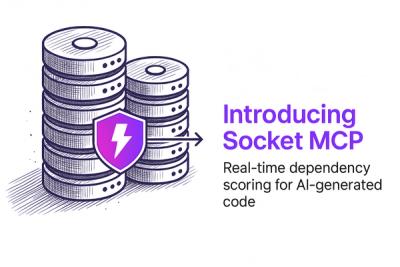What is parse-multipart-data?
The parse-multipart-data npm package is used to parse multipart/form-data, which is commonly used for file uploads in web applications. It allows you to extract files and fields from multipart form data.
What are parse-multipart-data's main functionalities?
Parsing Multipart Data
This feature allows you to parse multipart form data. The code sample demonstrates how to parse a multipart body with a boundary string, extracting both a text field and a file.
const { parse } = require('parse-multipart-data');
const boundary = '----WebKitFormBoundary7MA4YWxkTrZu0gW';
const body = Buffer.from('--' + boundary + '\r\nContent-Disposition: form-data; name="field1"\r\n\r\nvalue1\r\n--' + boundary + '\r\nContent-Disposition: form-data; name="file1"; filename="example.txt"\r\nContent-Type: text/plain\r\n\r\nHello, World!\r\n--' + boundary + '--');
const parts = parse(body, boundary);
console.log(parts);
Extracting Files
This feature allows you to extract files from the parsed multipart data. The code sample demonstrates how to find and extract a file named 'example.txt' from the multipart body.
const { parse } = require('parse-multipart-data');
const boundary = '----WebKitFormBoundary7MA4YWxkTrZu0gW';
const body = Buffer.from('--' + boundary + '\r\nContent-Disposition: form-data; name="file1"; filename="example.txt"\r\nContent-Type: text/plain\r\n\r\nHello, World!\r\n--' + boundary + '--');
const parts = parse(body, boundary);
const file = parts.find(part => part.filename === 'example.txt');
console.log(file);
Extracting Fields
This feature allows you to extract fields from the parsed multipart data. The code sample demonstrates how to find and extract a field named 'field1' from the multipart body.
const { parse } = require('parse-multipart-data');
const boundary = '----WebKitFormBoundary7MA4YWxkTrZu0gW';
const body = Buffer.from('--' + boundary + '\r\nContent-Disposition: form-data; name="field1"\r\n\r\nvalue1\r\n--' + boundary + '--');
const parts = parse(body, boundary);
const field = parts.find(part => part.name === 'field1');
console.log(field);
Other packages similar to parse-multipart-data
busboy
Busboy is a streaming parser for HTML form data for node.js. It is particularly useful for handling file uploads. Compared to parse-multipart-data, Busboy is more focused on streaming and can handle larger files more efficiently.
multer
Multer is a middleware for handling multipart/form-data, which is primarily used for uploading files. It is built on top of Busboy and provides a higher-level API for handling file uploads in Express.js applications. Compared to parse-multipart-data, Multer offers more features and is easier to integrate with Express.js.
formidable
Formidable is a Node.js module for parsing form data, especially file uploads. It is a mature and well-maintained library that provides a robust solution for handling file uploads. Compared to parse-multipart-data, Formidable offers more configuration options and is more feature-rich.
parse-multipart-data
A Typescript lib multipart/form-data parser which operates on raw data.
Forked from freesoftwarefactory/parse-multipart
Background
Sometimes you only have access to the raw multipart payload and it needs to be
parsed in order to extract the files or data contained on it. As an example:
the Amazon AWS ApiGateway, which will operate as a facade between the http
client and your component (the one written by you designed to extract the
uploaded files or data).
The raw payload formatted as multipart/form-data will looks like this one:
------WebKitFormBoundaryDtbT5UpPj83kllfw
Content-Disposition: form-data; name="uploads[]"; filename="somebinary.dat"
Content-Type: application/octet-stream
some binary data...maybe the bits of a image..
------WebKitFormBoundaryDtbT5UpPj83kllfw
Content-Disposition: form-data; name="uploads[]"; filename="sometext.txt"
Content-Type: text/plain
hello how are you
------WebKitFormBoundaryDtbT5UpPj83kllfw
Content-Disposition: form-data; name="input1";
value1
------WebKitFormBoundaryDtbT5UpPj83kllfw--
The lines above represents a raw multipart/form-data payload sent by some
HTTP client via form submission containing two files and an input text with id input1 and value value1. We need to extract everything contained inside it. The multipart format allows you to send more
than one file in the same payload, that's why it is called: multipart.
Usage
In the next lines you can see a implementation. In this case two key values
needs to be present:
------WebKitFormBoundaryDtbT5UpPj83kllfw
Content-Disposition: form-data; name="uploads[]"; filename="sometext.txt"
Content-Type: application/octet-stream
hello how are you
------WebKitFormBoundaryDtbT5UpPj83kllfw--
- boundary, the string which serve as a 'separator' between parts, it normally
comes to you via headers. In this case, the boundary is:
----WebKitFormBoundaryDtbT5UpPj83kllfw
Now, having this two key values then you can implement it:
const multipart = require('parse-multipart-data');
const body = "..the multipart raw body..";
const boundary = "----WebKitFormBoundaryDtbT5UpPj83kllfw";
const parts = multipart.parse(body,boundary);
for (let i = 0; i < parts.length; i++) {
const part = parts[i];
}
The returned data is a part array with properties: filename, type and data. data is type of Buffer.



